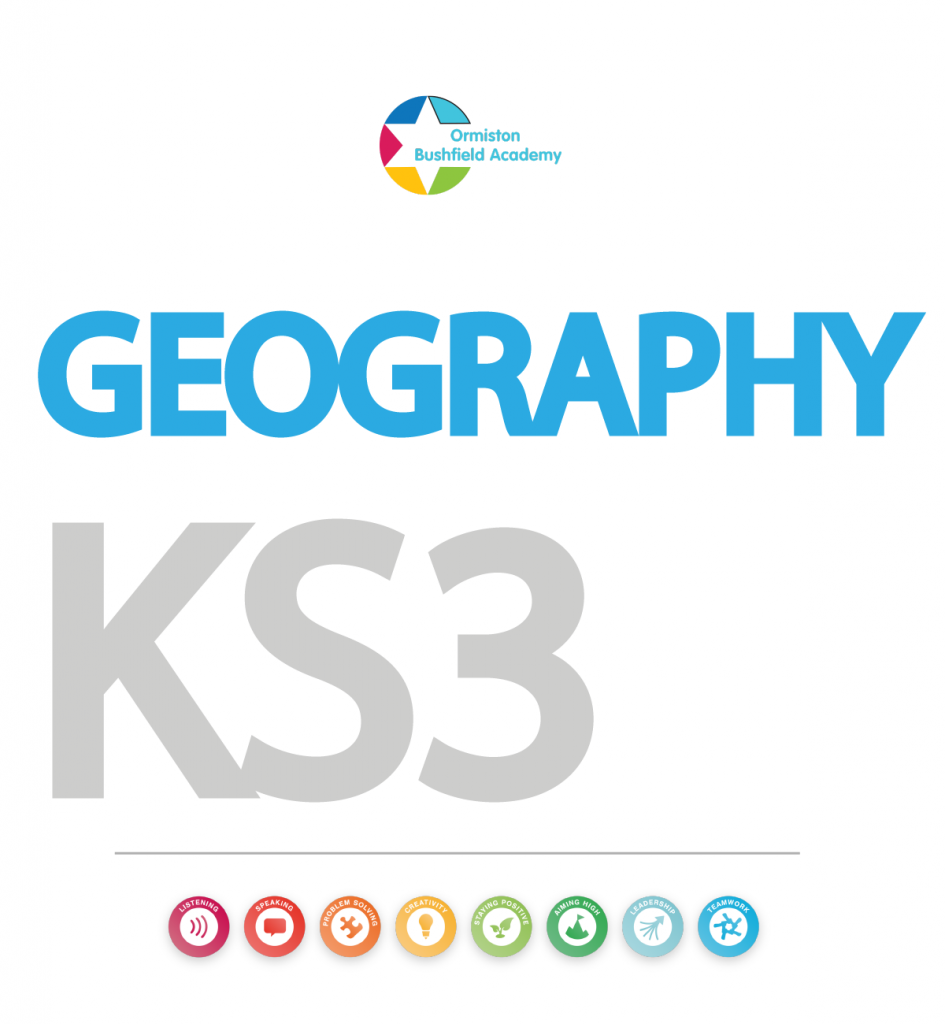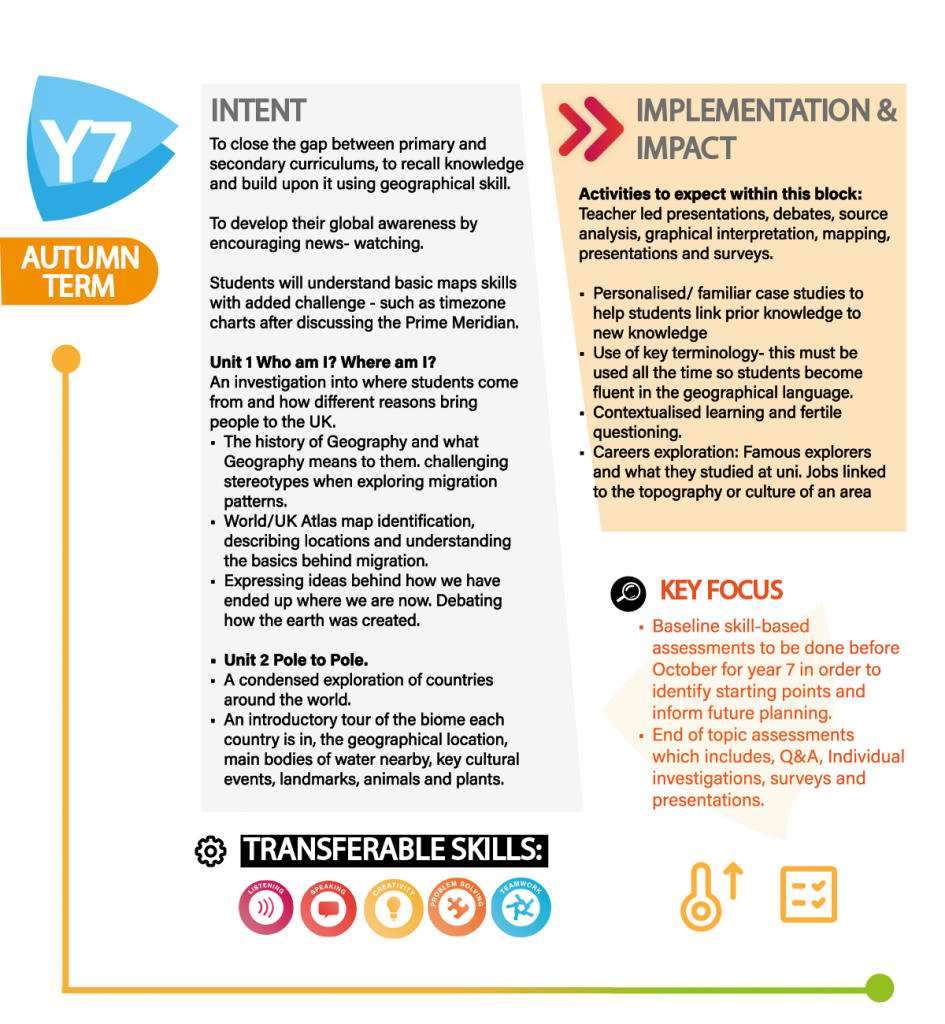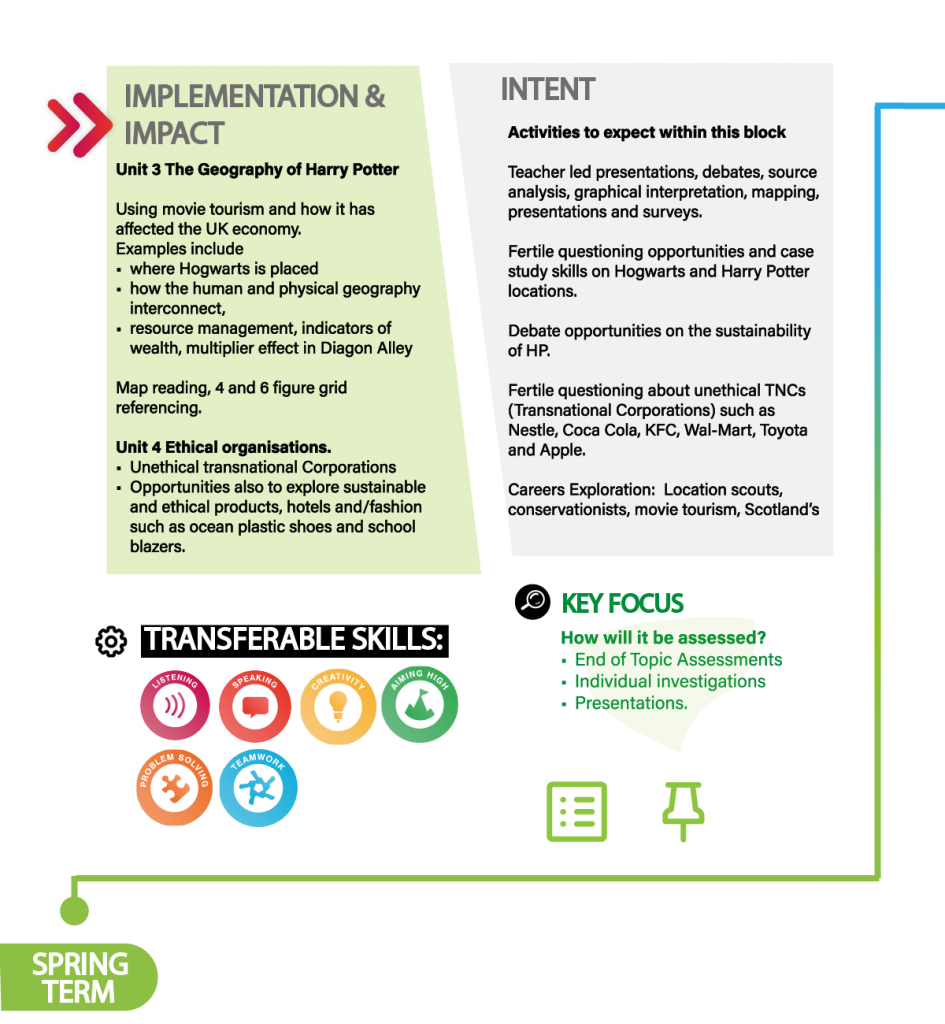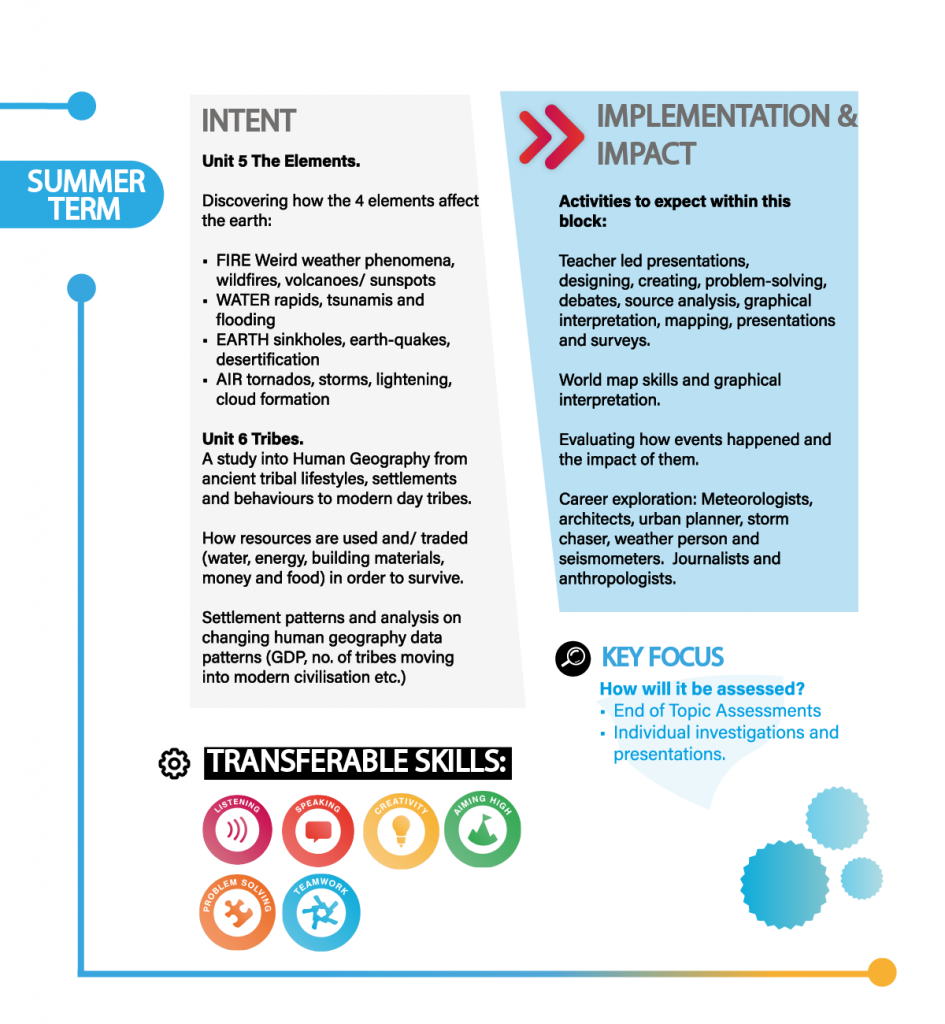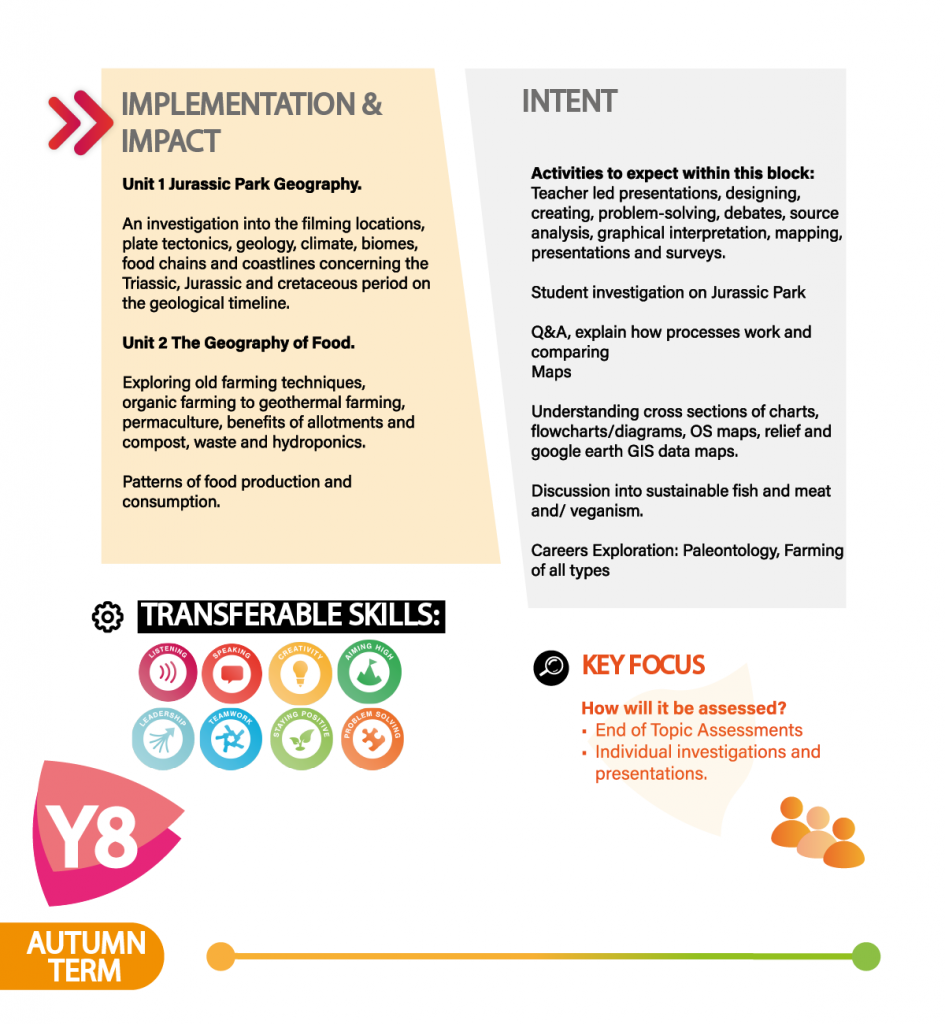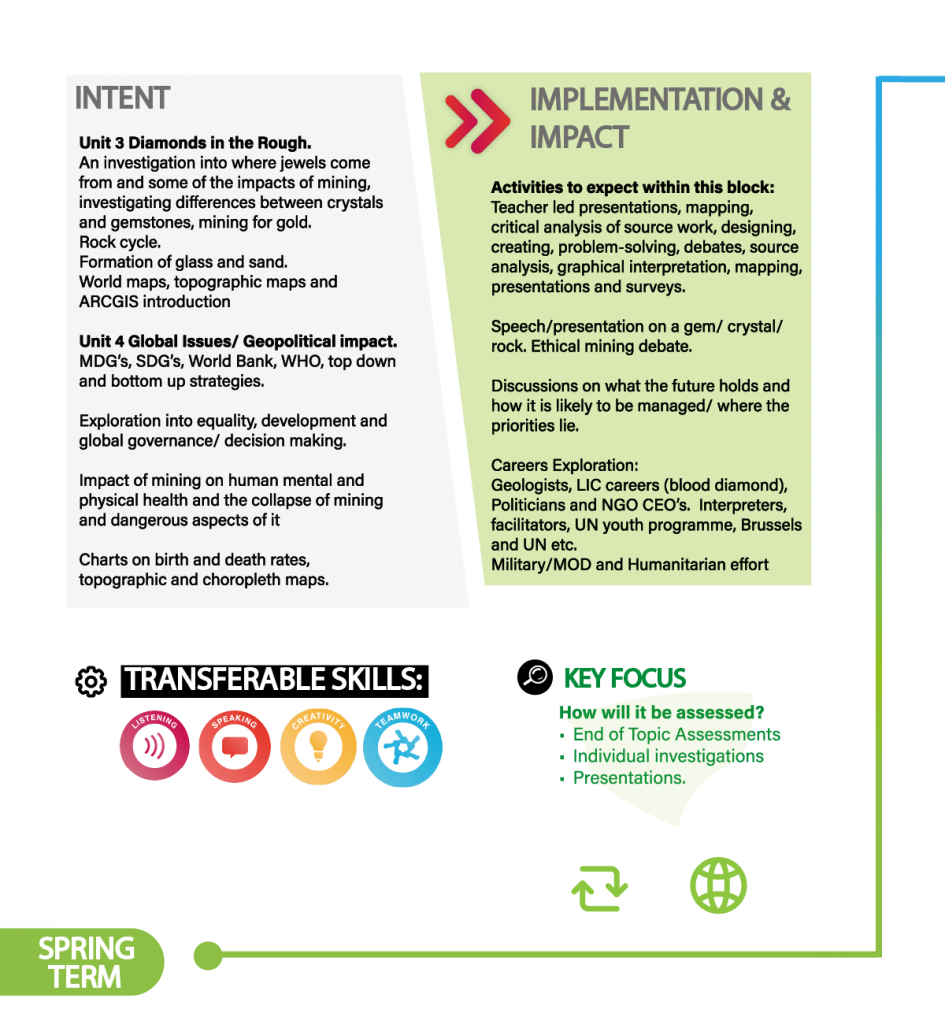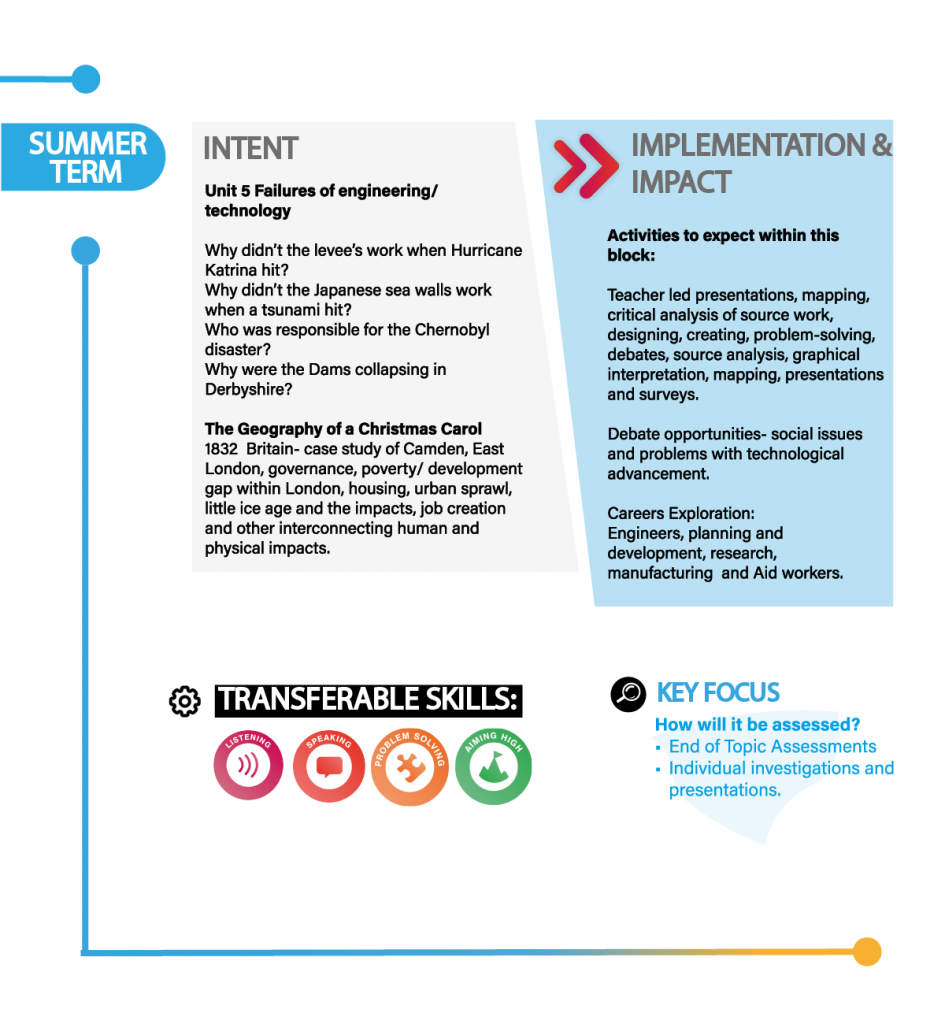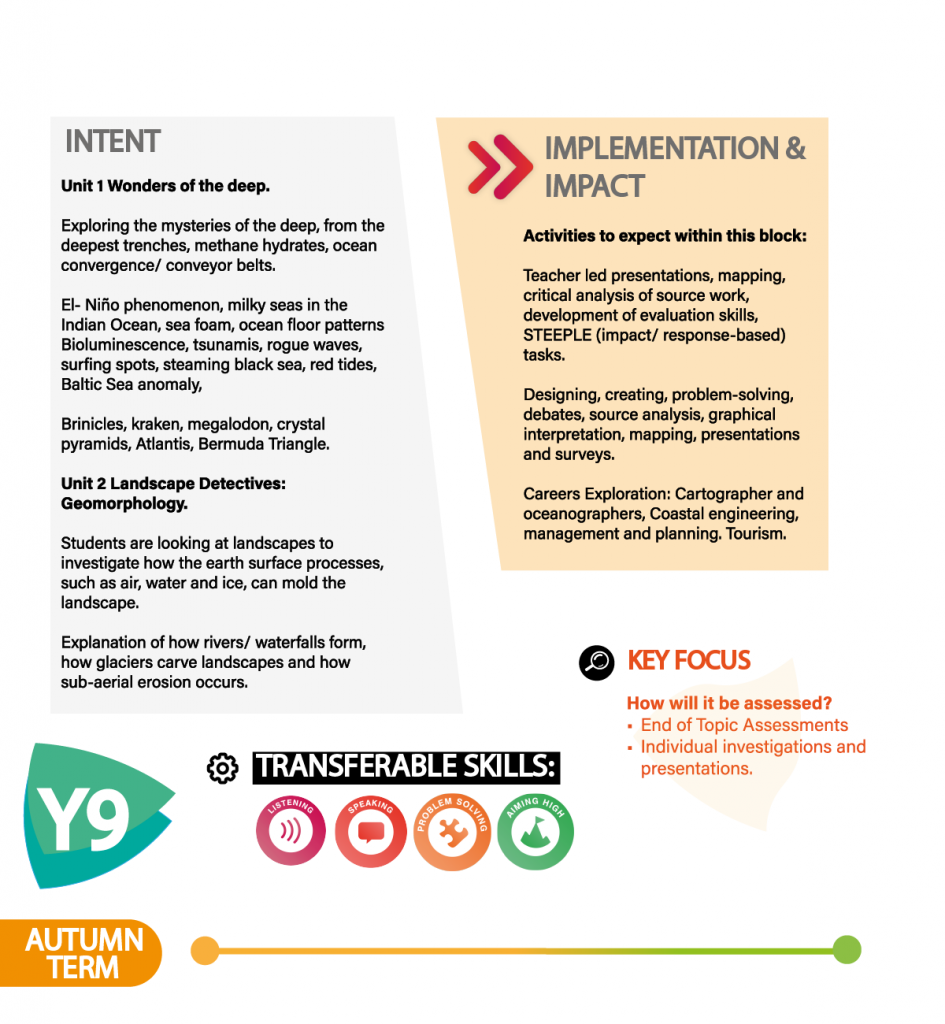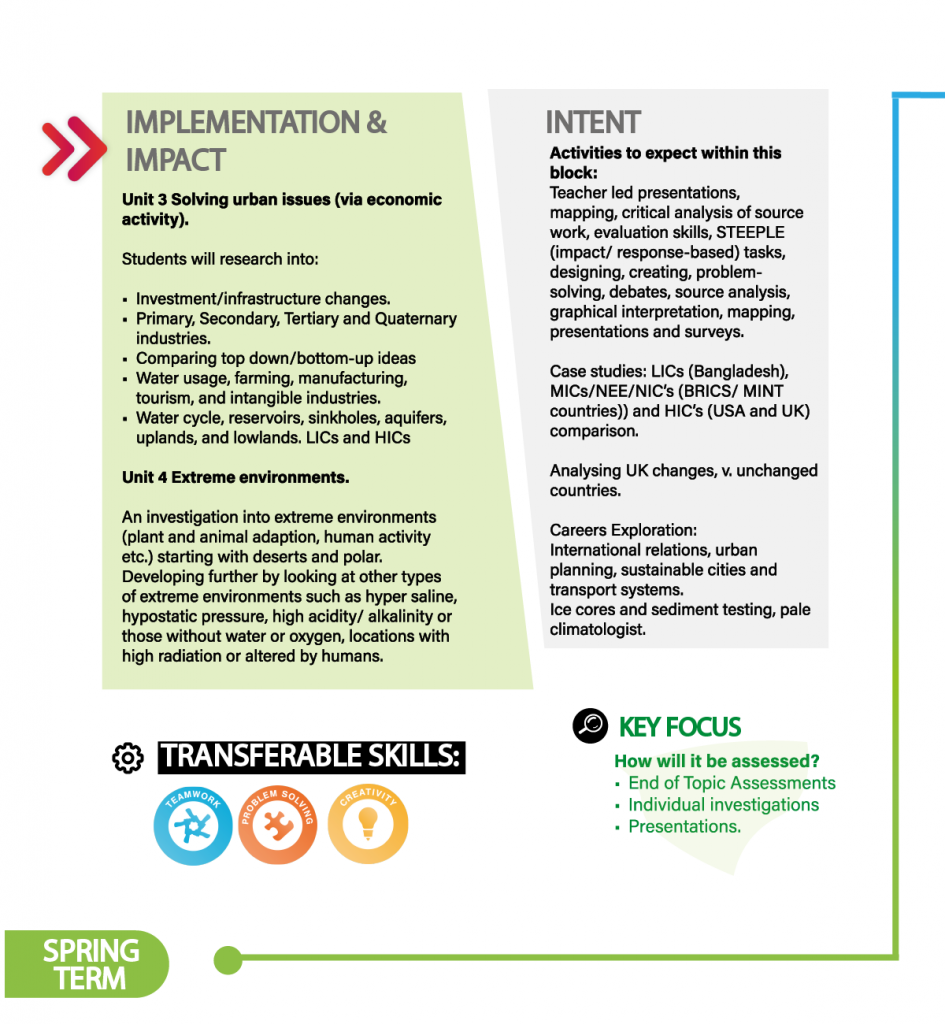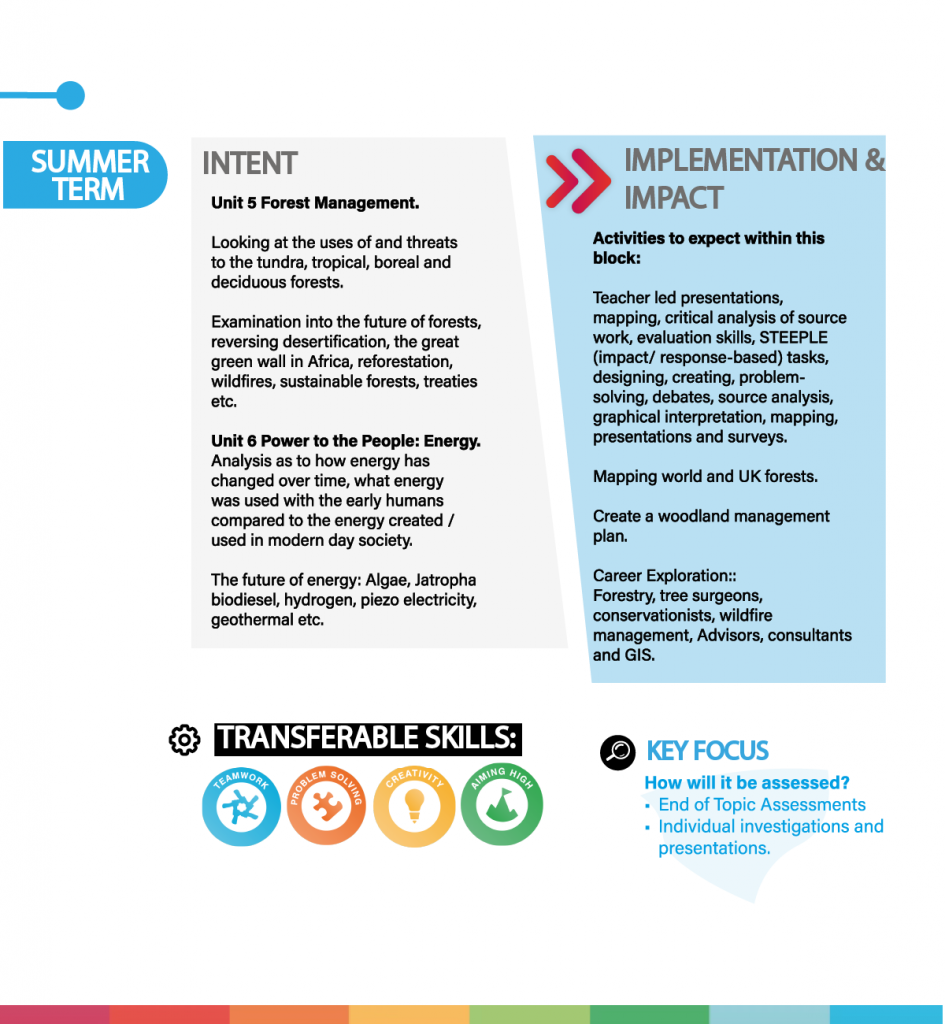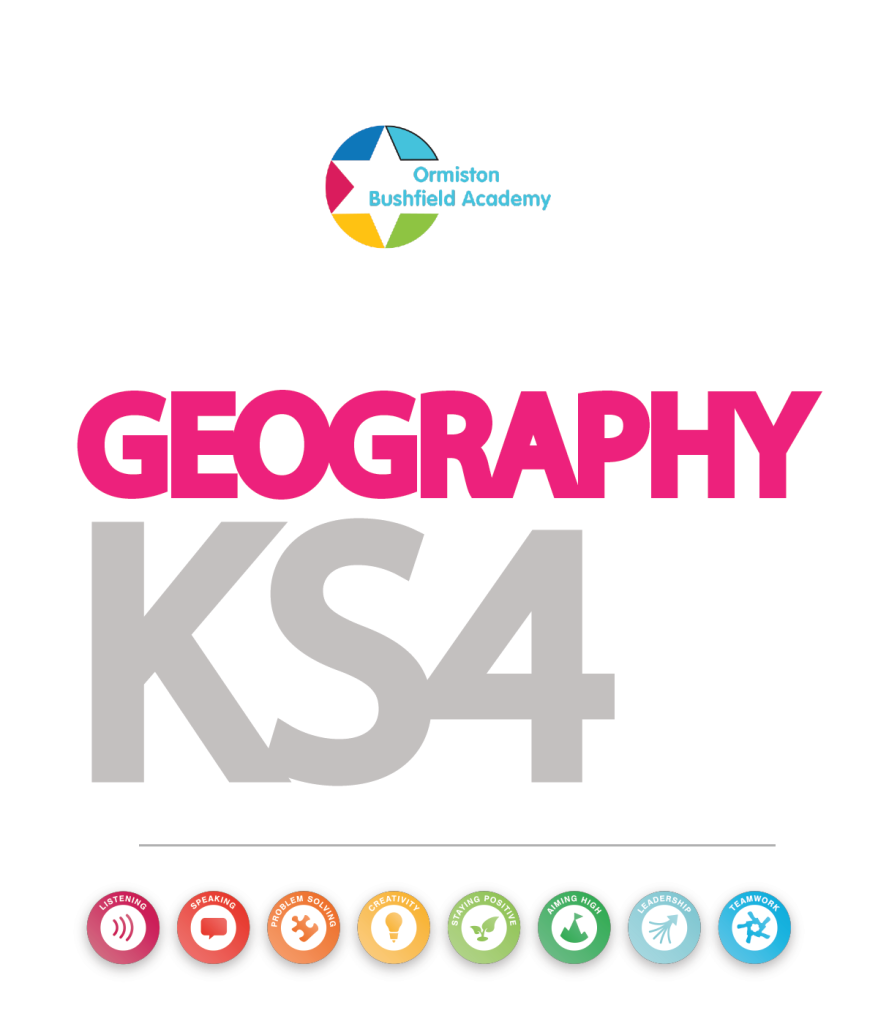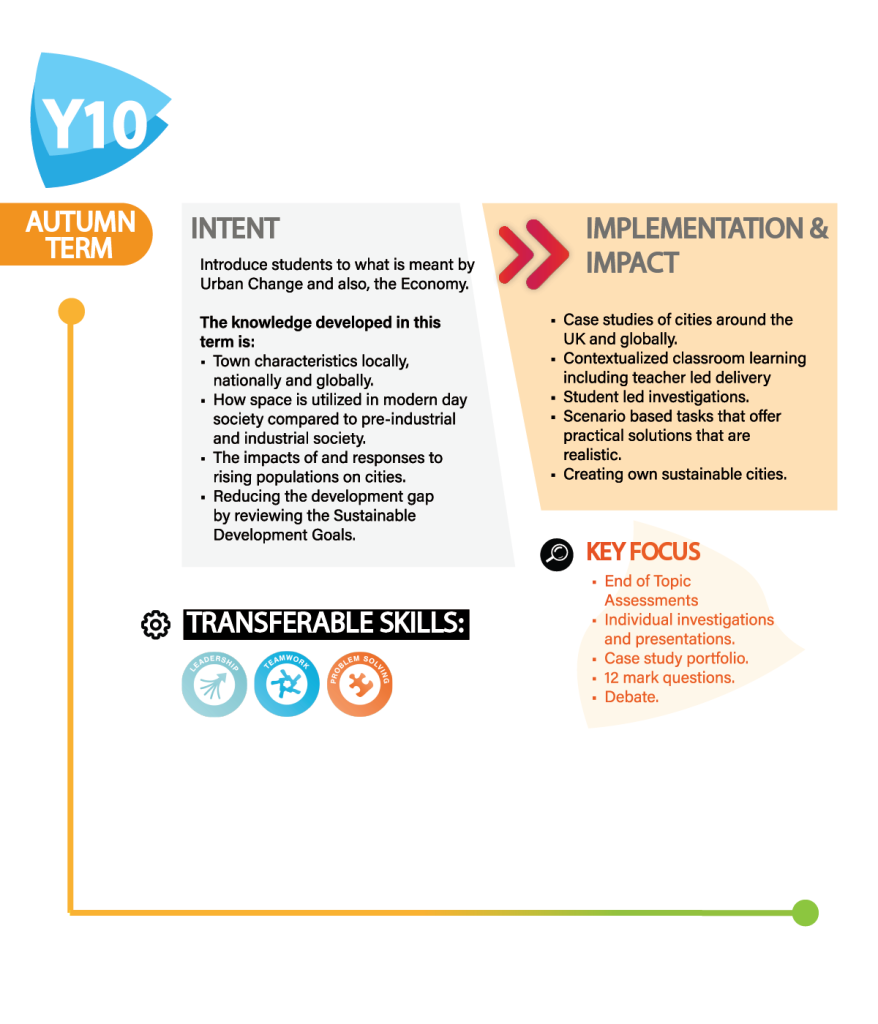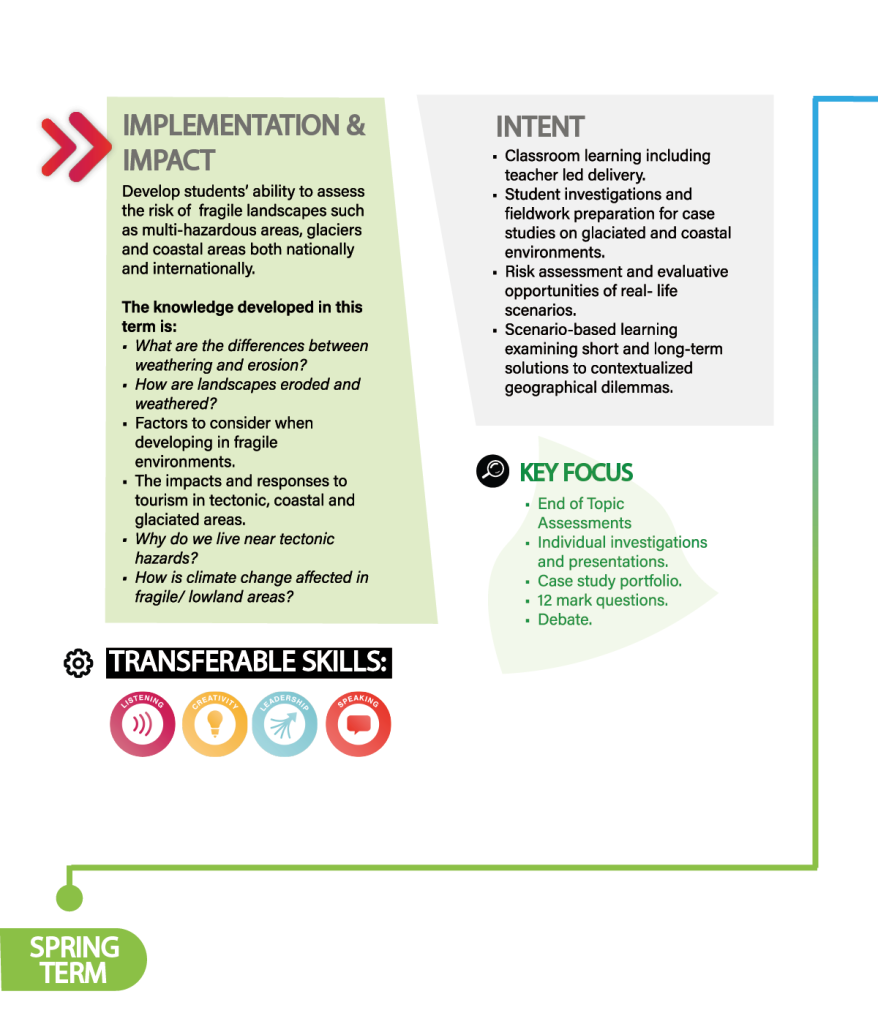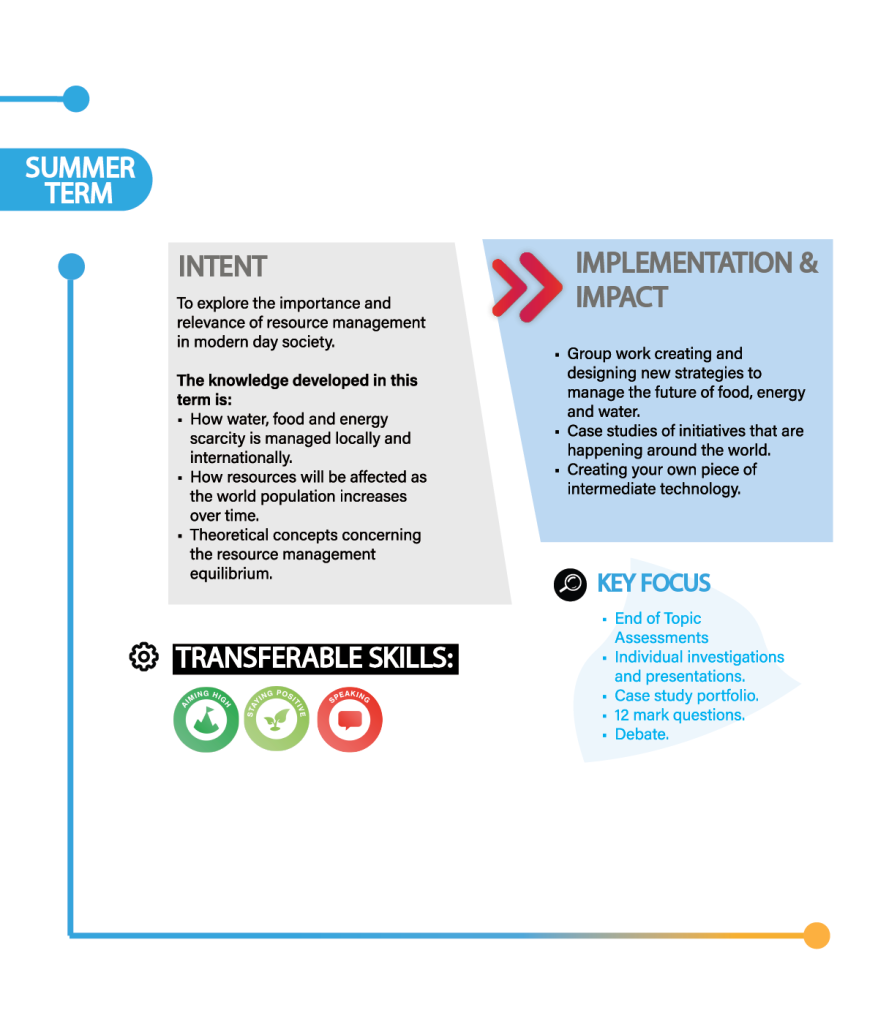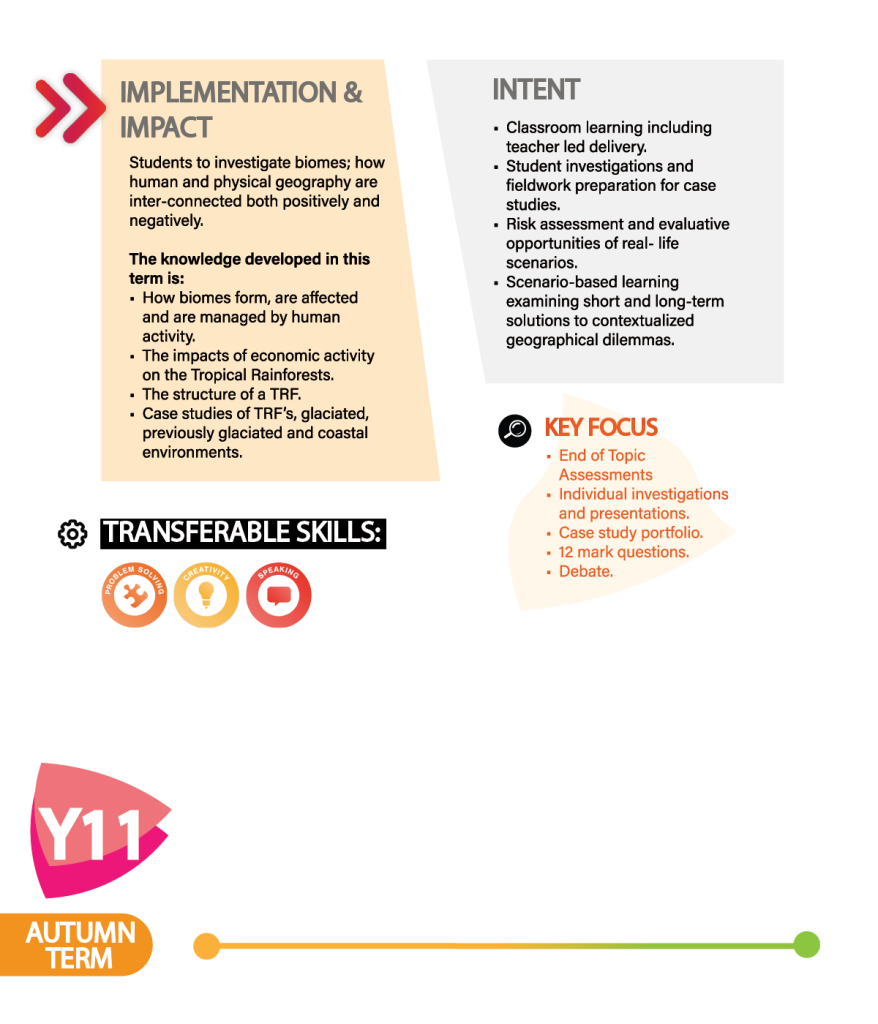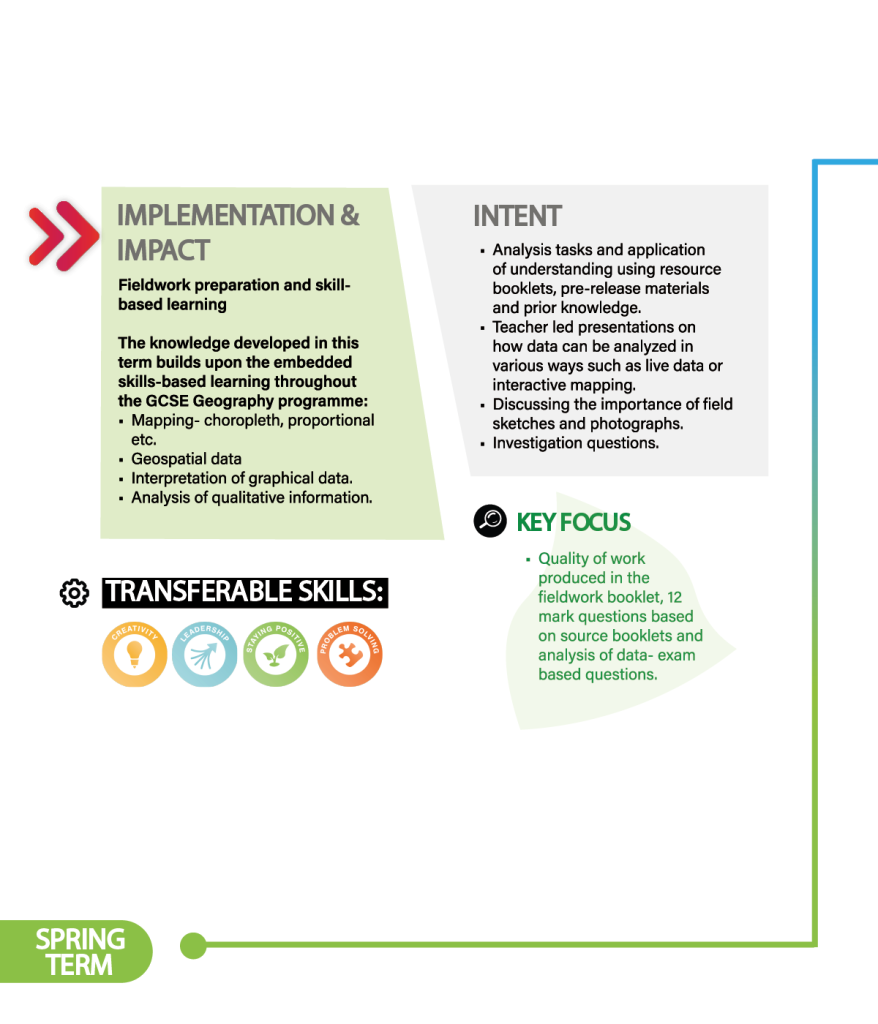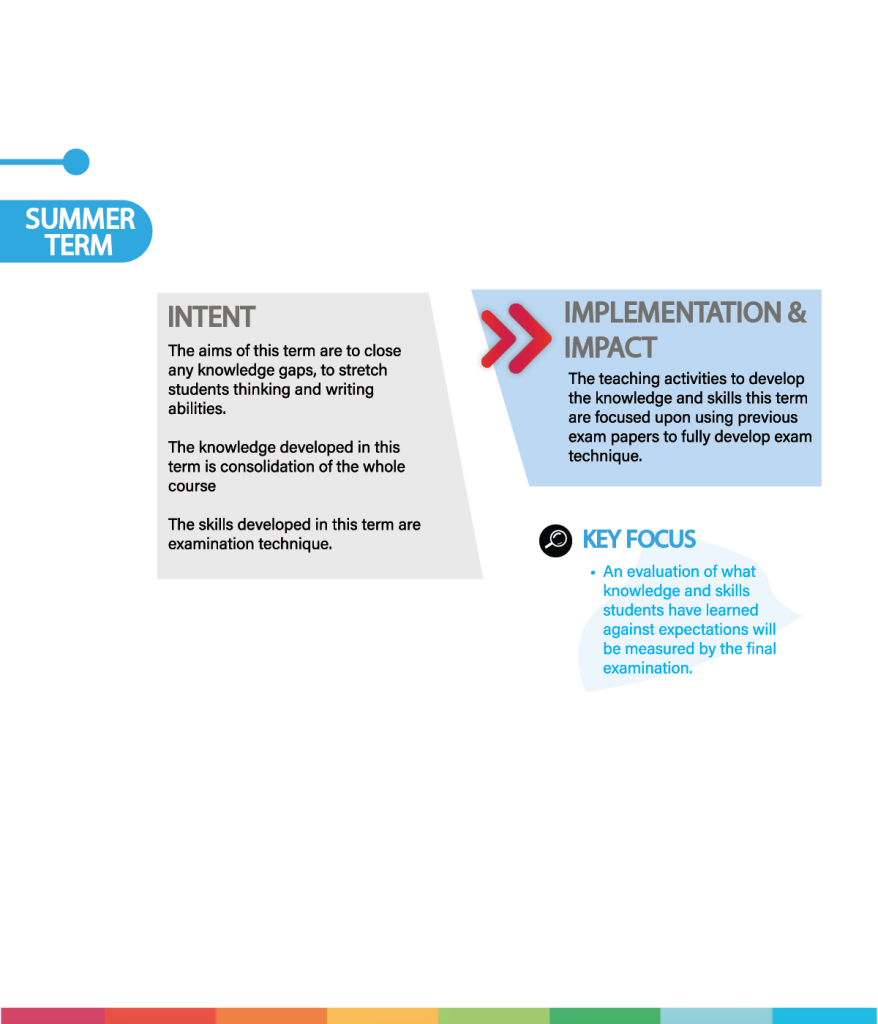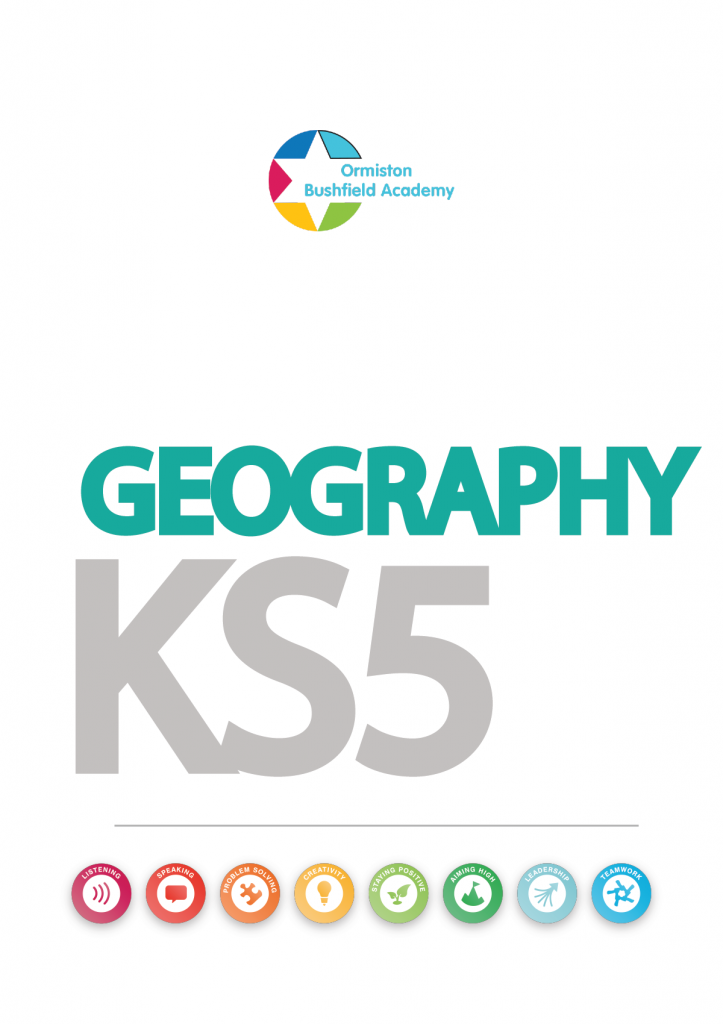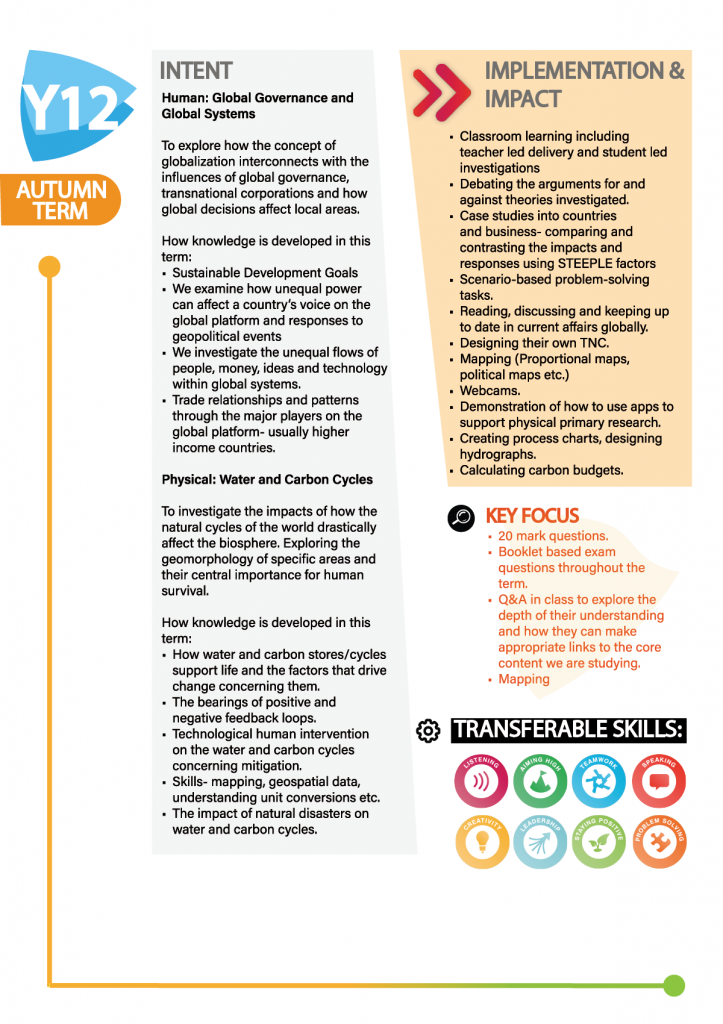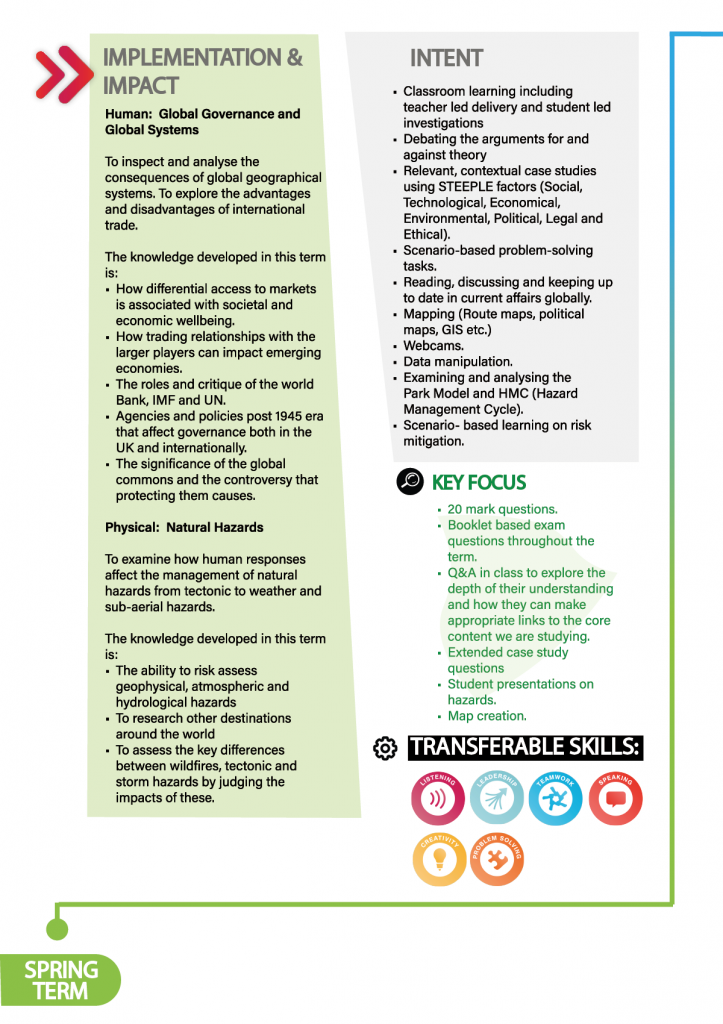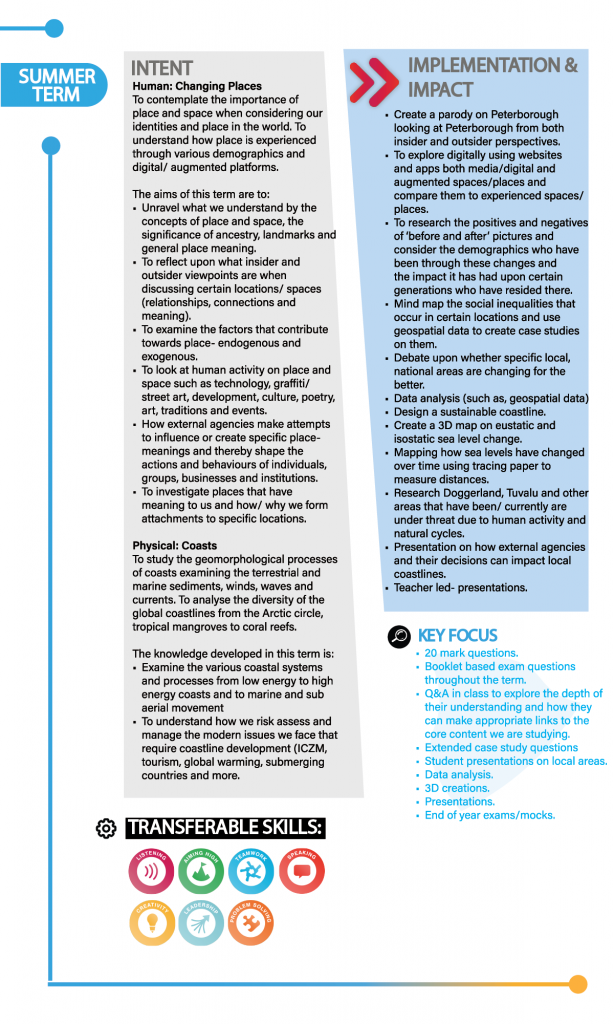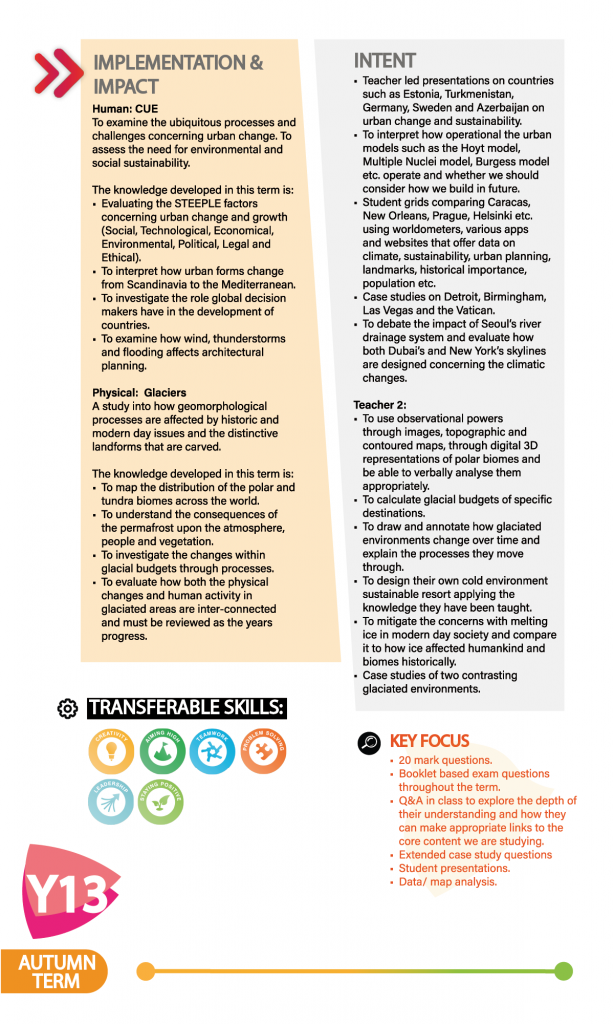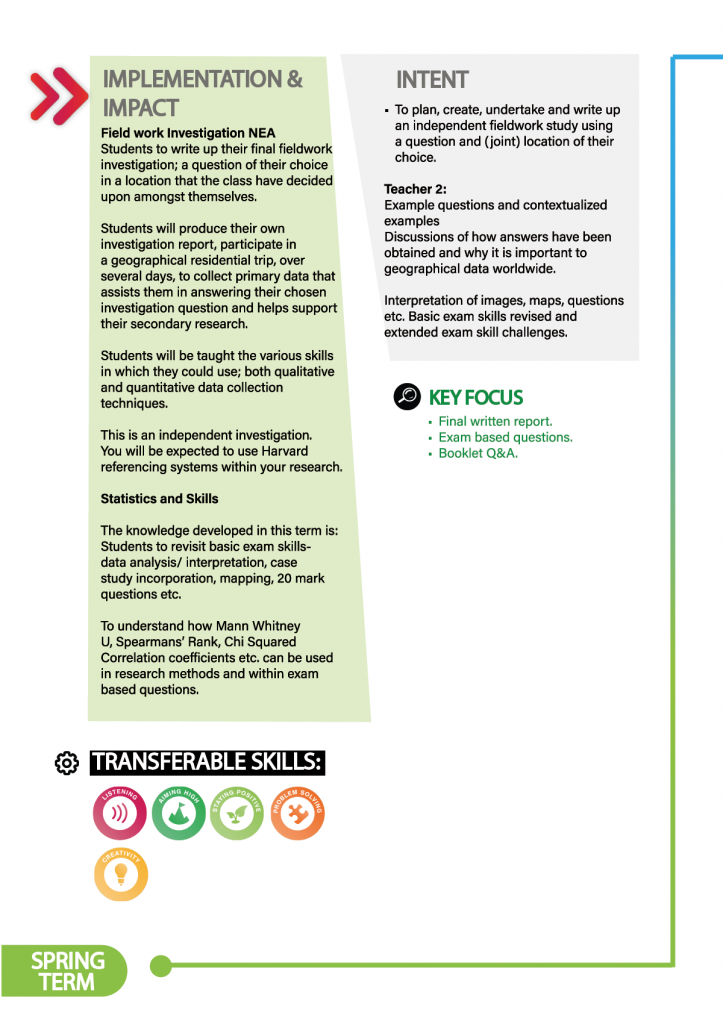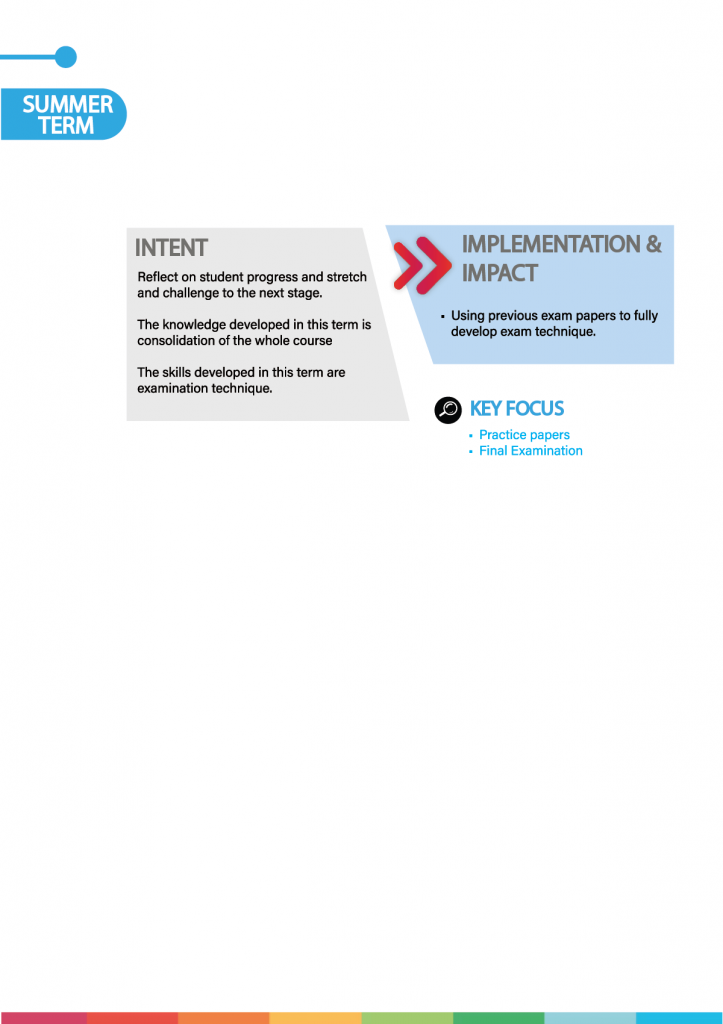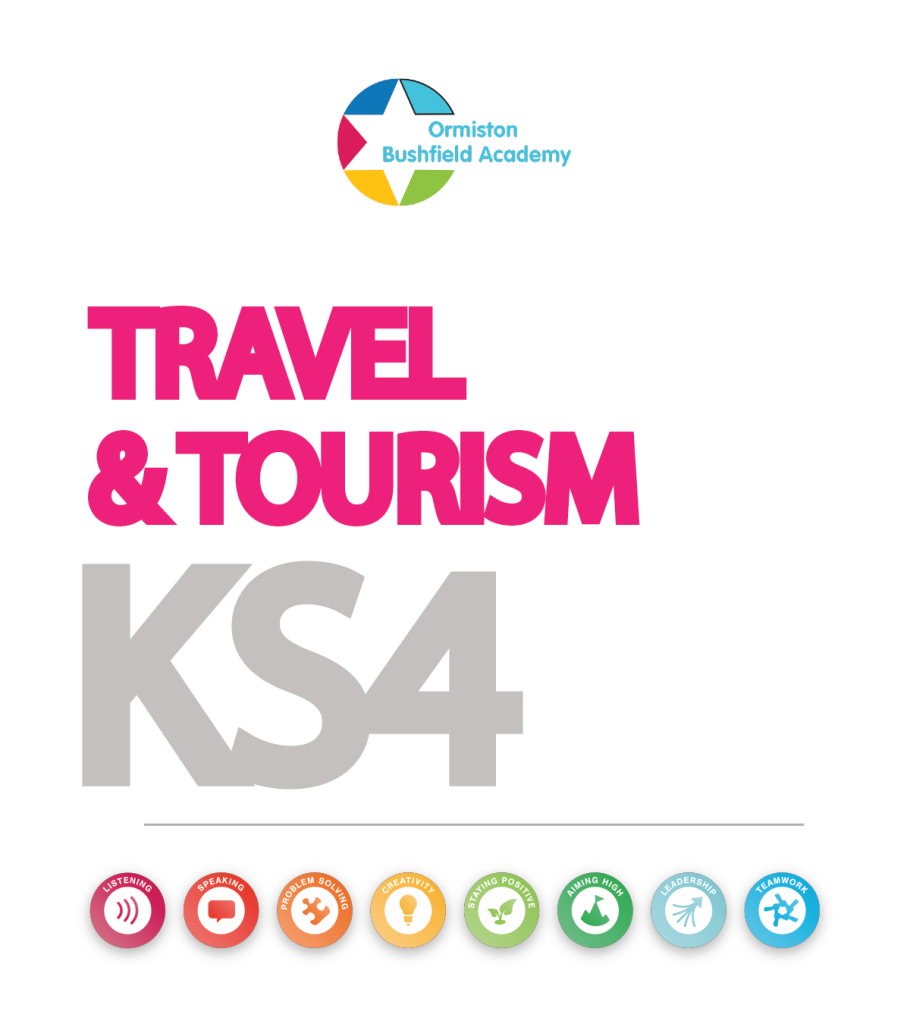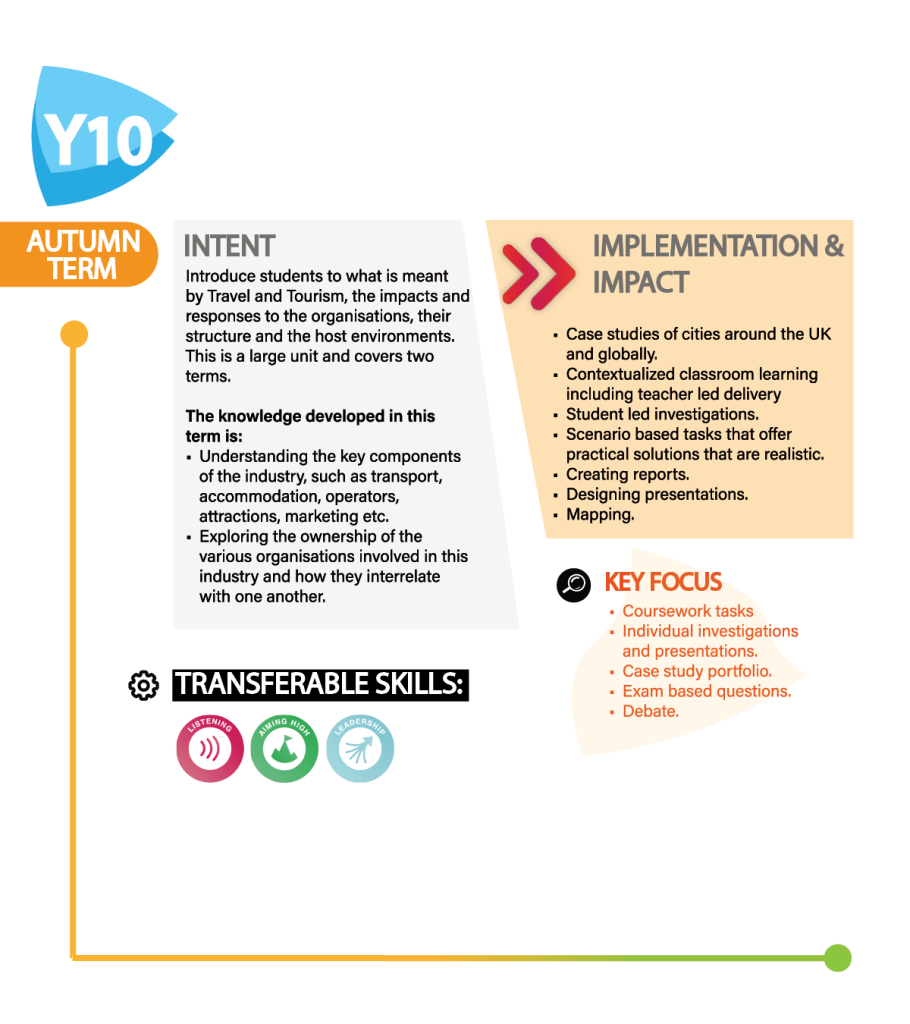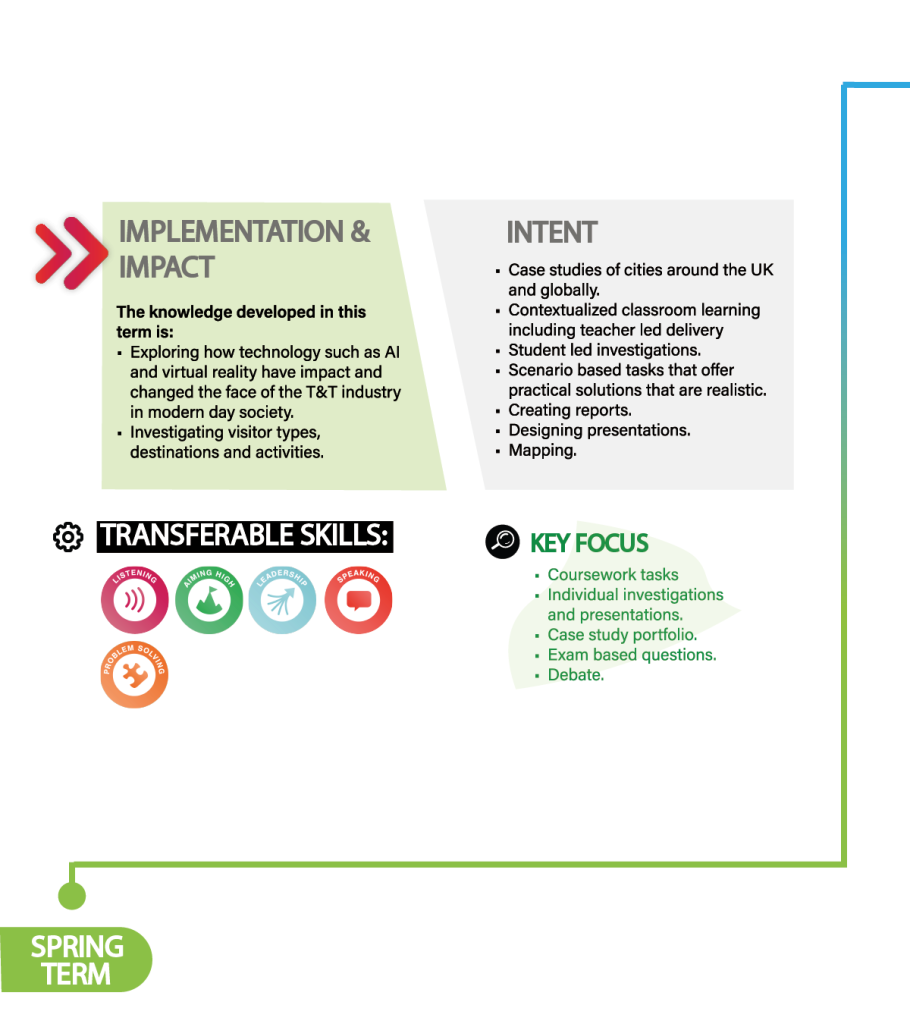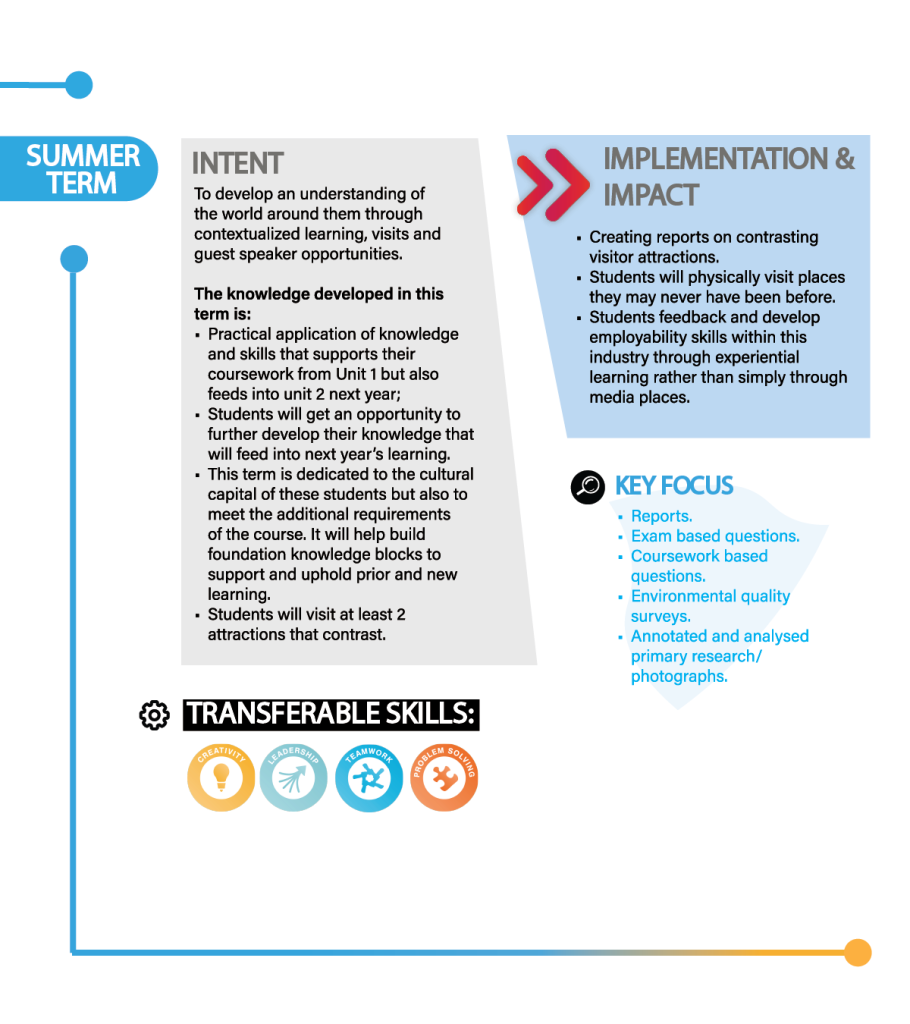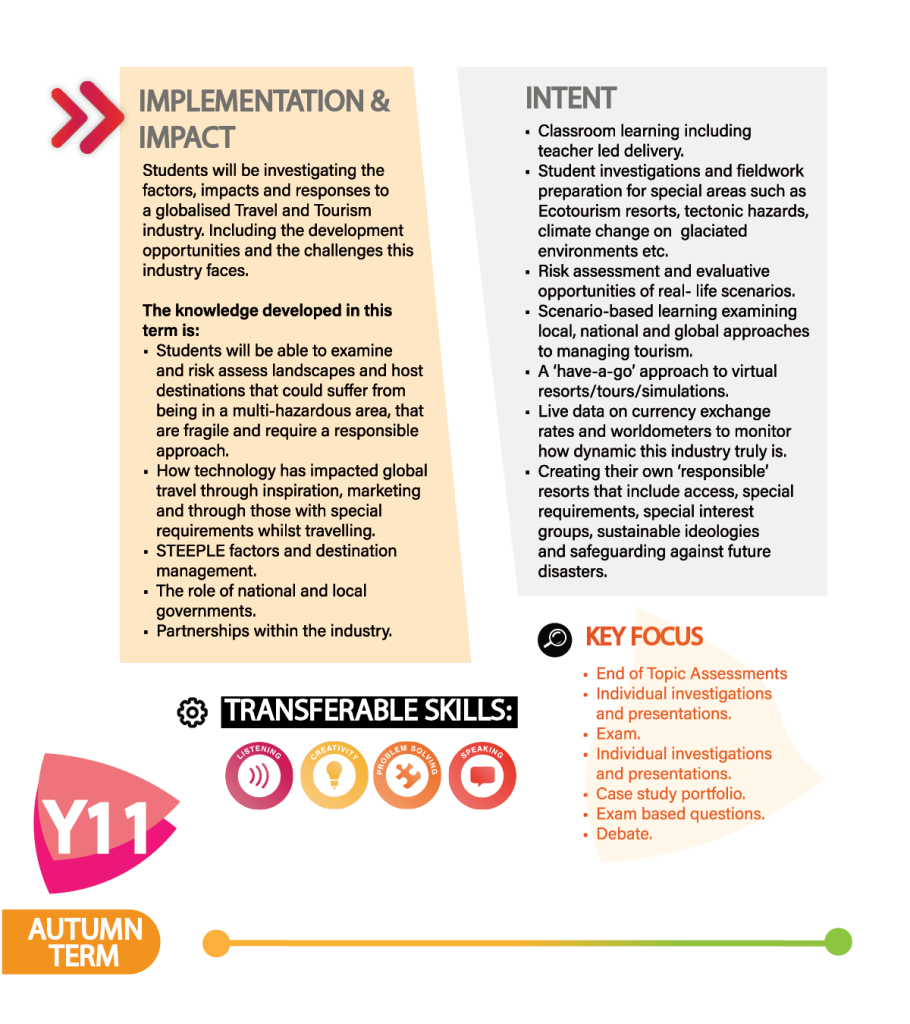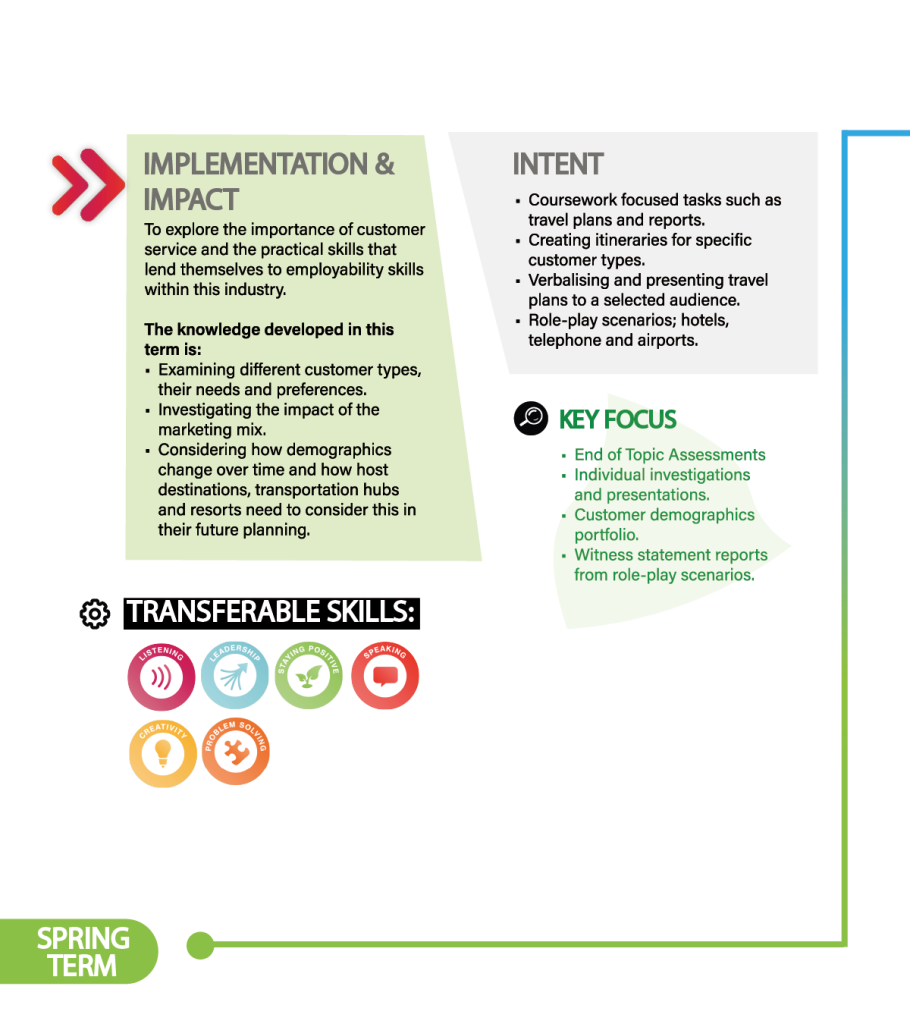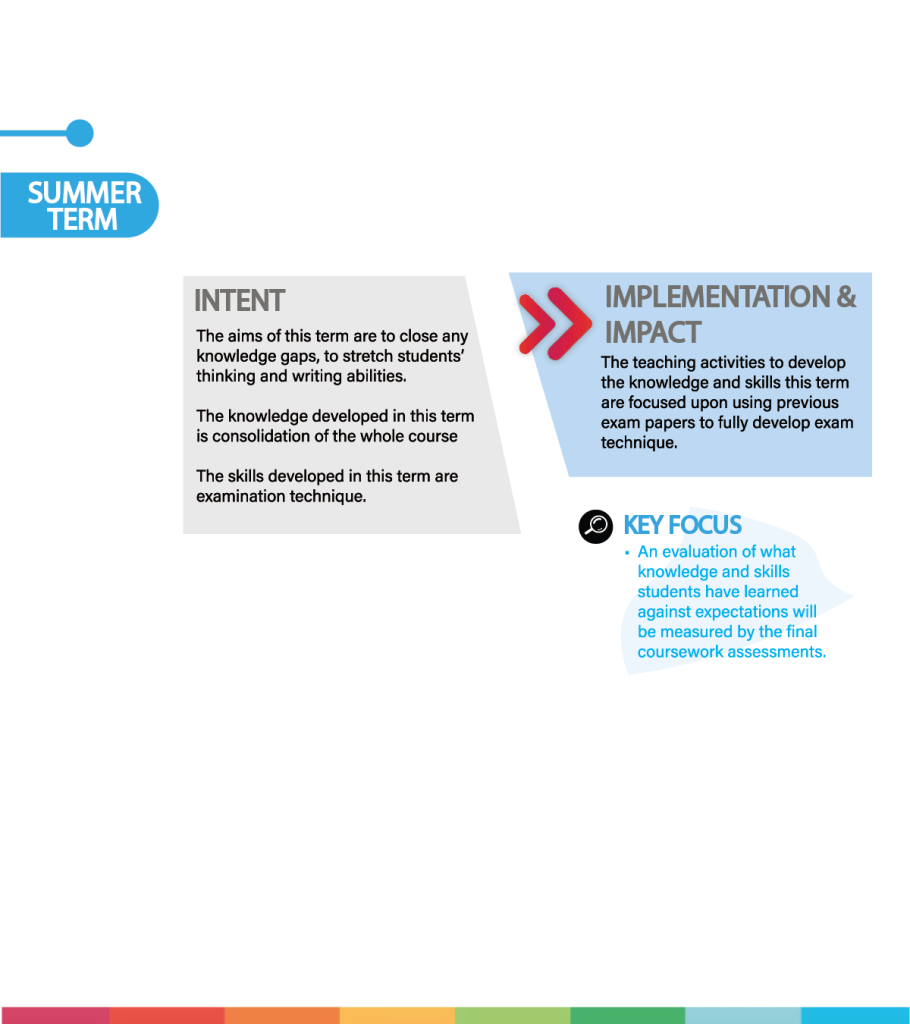Geography, Travel and Tourism
Modern day society is demonstrably dynamic and therefore requires a holistic approach, a critical eye and individuals who can analyse and manage the various circumstances/ scenarios that we find ourselves in across the globe every day; whether it be hazard management, resource scarcity, marketing queries, global governance, how places affect our core identities and leisure pursuits or even how to deal with basic customer service. This faculty prepares students in such a manner that it helps them navigate their way through a globalised world with changing technology, places, people and culture- recognising that we have an element of control over this if we think and act responsibly. We offer employability skills such as management of people and places, debating, problem solving, teamwork, presenting, graphical interpretation and offers more practical fieldwork opportunities too.
This subject gives context to the future of our students using very ‘real’ scenarios.
The very nature of Geography and Travel & Tourism allows us to focus on a micro to a macro scale; that individual efforts contribute to global impacts. Within the classroom we find that the using a variety of classroom techniques to guide them around the world (from images, clips, photos, life stories, debates etc.) students always find an element of the course to fully connect with; unit 1 focuses on the planet’s physical features, unit 2 focuses on the human features and unit 3 focus on the skills and interactive mapping for instance. We ensure everyone can identify and connect with the topics that are taught by contextualizing them and connecting them with their place in the world.
In Geography we mix the physical, human and skills sessions up and have created our own revisions videos that students can use at home, they have access to all lessons, revision materials and country case studies on a google classroom they can dip in and out of. This supports to stretch students who crave more information and those who may take longer to process information. Parents at GCSE also get their own online pack as to how to help students at home, should they want to get involved also, where to find resources etc.
In Travel & Tourism students have constant access to ICT which gives them the opportunity to research and work at their own pace, to a large extent. Deadlines are distributed in advance, and therefore students are aware of the timeframe they have and how/ when to ask for support. Tasks are broken down into various chunks, which are easy to follow and can all be found on the Google Classroom. This subject helps build independence and resilience and gives them a ‘ready for work’ experience.
In order to understand what is occurring in the world, students are required to keep up to date on the news items featuring in the media, across the globe; from the BBC to the Wall Street journal. These items are frequently discussed in lessons and are expected to been seen in exam papers and/ coursework as case studies. It gives depth to their understanding about the world in which we live and contributes to the knowledge and understanding of the subject. They also critically examine how different stakeholders may approach the news headlines.
Recommended Reading:
BBC World/ Sky News online or on television each day.
The following are suggestions of books to consider, but the list of reading that is relevant is varied and should be adjusted to meet your own personal areas of interest.
Horrible Geography collection
‘Geography in the News’ online
The inconvenient Truth- Al Gore
Prisoners of Geography- Tim Marshall
Bear Grylls/ Ben Fogle/ Sir Ranulph Fiennes autobiographies
Geography Review periodical
There is no Planet B-Mike Berners-Lee
Beyond the map- Alistair Bonett
Books that offer dystopian societies for global governance are often popular with those hoping to stretch and challenge their mind.
Endangered – Eliot Schrefer
Canoeing in the Congo – Phil Harwood
The Bottom Billion – Paul Collier
How to Give Up Plastic: A Guide to Changing the World, One Plastic Bottle at a Time – Will McCallum
Our Planet – Alastair Fothergill, Fred Pearce, and Keith Scholey
Notes from a Small Island – Bill Bryson
Where on earth? Geography without all the boring bits –Jim Doyle
Graphic Expeditions series e.g. Getting to the Bottom of Global Warming – Terry Collins
The Scramble for Africa–Thomas Pakenham
Around the World in 80 Days
World Development – Barry Baker
We sequence our lessons in such a manner that each unit interlinks with another, building solid foundations and teaching from the beginning and beyond the curriculum. We have looked at how Geography fits into the interdisciplinary aspects of the school and can say how it connects with every subject. Within Geography key themes (such as sustainability, economics, governance, situation and people management, healthcare, migration, responsible behaviour, building and resource and food management, sporting and leisure events, culture and tradition etc.) all are found in other parts of the OBA curriculum. We have even interconnected with subjects to create new units such as the Geography of Harry Potter, Jurassic Park and A Christmas Carol. We run various trips both locally and nationally.
Travel and Tourism units are also taught from the beginning they have opportunities, much like Geography to go on fieldwork trips too such as Cadbury World where they learn about marketing, world issues and transnational involvement or the Sea Life Centre and Hunstanton Seafront where they examine the advantages and disadvantages to tourism near the sea, with the changing climates and population demographics.
Curriculum Maps
Here you can browse the curriculum maps for each Key Stage. Use the tabs to select the subject and key stage you wish to view, and use the left & right arrows to browse through the slides.
